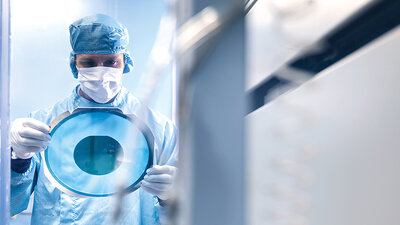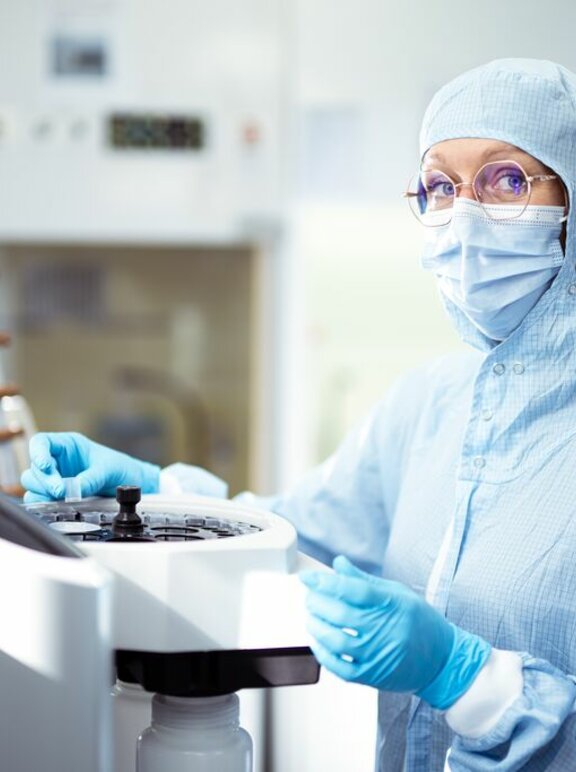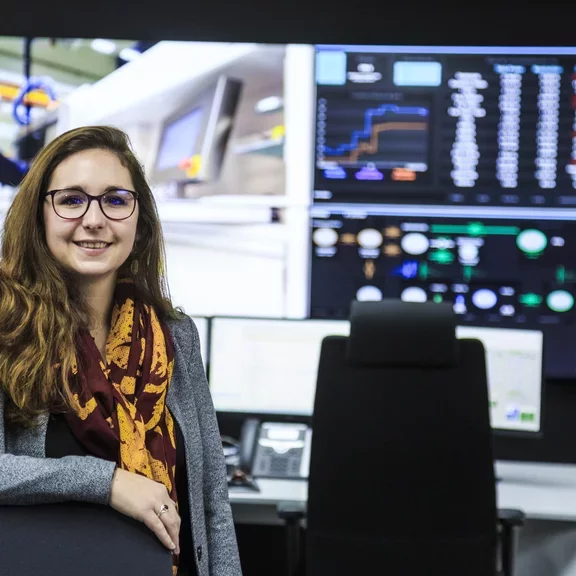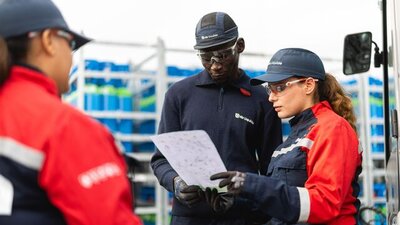Our innovation approach
We connect to innovation ecosystems for sustainable growth
Since its beginning, Air Liquide has made innovation the driving force of its strategy by focusing on major societal trends and our markets of the future: the energy transition, the evolution of healthcare and industry and the development of deeptech.
€309 M of innovation expenses in 2024
350 innovation partnerships with academics, industrial partners and start-ups
More than 3,000 employees work in entities dedicated to innovation

“Our innovation focuses on energy transition, digital, data and AI to offer sustainable solutions to our customers and patients.
”
Armelle Levieux
Member of the Executive Committee, Vice President of Innovation, overseeing the Hydrogen Energy and Electronics world business lines
-
40 startups accelerated by ALIAD, the Group's venture capital investor
-
70% of R&D projects dedicated to the energy transition
-
3.5 billion data points collected every day
-
500+ use cases, products and programs using data and artificial intelligence
Science and digital, at the heart of all our innovations
A unique scientific expertise
Thanks to its strong expertise in Essential Small Molecules and its knowledge of data science, R&D has a wide range of skills in materials science, process engineering, life science, chemistry, combustion, cryogenics and analytical science that enable Air Liquide to continuously develop new applications for its molecules. With its scientific and industrial partners, R&D is actively working to deepen its knowledge of Essential Small Molecules in order to explore new horizons and thus provide solutions to future challenges in industry and health.
Our 18 Essential Small Molecules are: oxygen (O2), nitrogen (N2), hydrogen (H2), carbon dioxide (CO2), carbon monoxide (CO), methane (CH4), argon (Ar), xenon (Xe), krypton (Kr), neon (Ne), helium (He), nitric oxide (NO), nitrous oxide (N2O), acetylene (C2H2), ozone (O3), water (H2O) and silane (SiH4).
.
Digital in all our offerings
For Air Liquide, leveraging the power of digital means creating more value. Everyday we use data to optimize the management of our industrial assets, develop new offers and services, improve the experience of our customers and teams, and reduce our carbon emissions and those of our customers. The result? More efficiencies, more opportunities for growth, all in a sustainable way.
Every day our teams of developers, designers, data scientists and network architects work with our business teams to imagine, develop, and deploy digital solutions for our customers, patients, employees, while contributing to the Group's efficiency.
Innovation with ecosystems
Our innovation is part of an open, global ecosystem. It is supported by our Innovation Campuses in Europe, the United States and Asia, the Campus Technologies Grenoble in France, and the Digital Factory.
Our innovation teams bring together profiles of different nationalities and skills: scientific and technical profiles in Research & Development, developers, engineers, network architects, designers, data scientists within Digital & IT (including Alizent), technical and commercial profiles for the Global Markets & Technologies activity, or for ACCELAIR and ALIAD.
Accelerating innovation with start-ups
Air Liquide works with around a hundred start-ups to accelerate innovation and integrate new products, technologies and solutions into the Group's offerings.
With ALIAD, the Group's venture capital investor, Air Liquide supports innovative technological start-ups to help them grow, with the objective of helping them industrialize their products and access different markets. This support takes the form of minority stakes in the start-up's capital.
ACCELAIR, Air Liquide's deep tech start-up accelerator, hosted on the Innovation Paris Campus, offers selected start-ups access to experimentation spaces (laboratories, test platforms) and a support programme run by Air Liquide experts to accelerate the process of bringing their offer to market.













